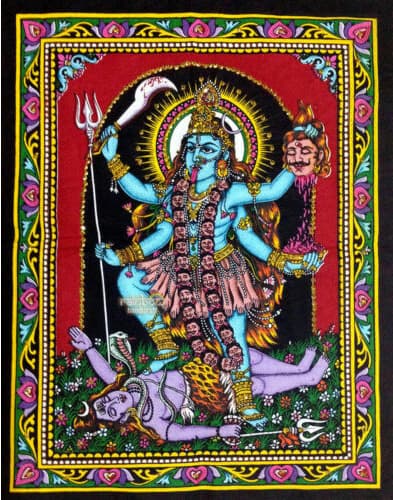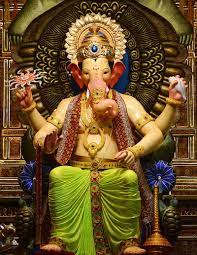In this OP I will compare the evidence for the Exodus (1) Within Egypt or Indus, (2) Route of the Exodus; (3) Names; (4) Narratives.
1] Evidence from Mitsrayim
Egypt: Pyramids were built of stone (Exodus 5:7–8) . Mud bricks were used only for poor-houses. Main construction material was stone. A conflict leading to Exodus would scarcely take place on the construction of poor-houses. Further, only 1% straw was added as binder in mud bricks. The conflict, then, would more likely take on collection of clay etc. rather than straw.
Indus: Entire cities in the Indus were made from burnt bricks. Straw as fuel constitutes one-half of the cost of production of baked bricks and conflict on collection of the same makes sense.
Egypt: Skeletons of infants of three months old and younger, usually several in one box, buried under homes in a slave town called Kahun (Exodus 1:16), corresponding to Pharaoh’s slaughter of Hebrew infants. But we don’t know the narrative behind it.
Indus: Hindu King Kamsa ordered all male children of the Yadavas to be killed. No parallel legend in Egypt.
Egypt: Masses of houses and shops in Kahun, abandoned so quickly that tools, household implements, and other possessions were left behind. The findings suggest the abandonment was total, hasty, and done on short notice (Exodus 12:30–34, 39), consistent with the Israelites’ sudden exit from Egypt in the wake of Passover.
Indus: Entire cities were abandoned around 1500 BCE.
Egypt: Court advisors used rods that look like snakes (Exodus 7:10–12). This partly corroborates the magical opposition against Moses performed by Pharaoh’s advisors.
Indus: The stick is a standard weapon even in contemporary India.
Egypt: The Ipuwer Papyrus, a work of poetry stating, in part, “Plague stalks through the land and blood is everywhere… Nay, but the river is blood… gates, columns and walls are consumed with fire… the son of the high-born man is no longer to be recognized… The stranger people from outside are come into Egypt… Nay, but corn has perished everywhere.” But the connection of this narrative with the Hebrews is not established. There is no reference to them leaving.
Indus: The Hindu texts tell of the Yadavas leaving due to natural calamities or troubles.
2] Route of the Exodus
Egypt: No parting of sea in Egypt.
Indus: The parting of the Yam Suf matches with the flow of the Indus River being blocked by eruption of a mud volcano upstream of the point of crossing.
Egypt: No location of Second Yam Suf (Numbers 33:10).
Indus: Hamun-e-Mashkel water body falls on the route.
Egypt: Sinai was under control of Egyptians.
Indus: The Indus formed a natural border between the fleeing Hebrews and pursuing Mitsrites.
Egypt: No volcano in Sinai.
Indus: Taftan.
Egypt: No place named Paran in Sinai.
Indus: Ancient place name ‘Paran” near Isfahan.
Egypt: No Kings Highway between Egypt and Israel.
Indus: Kings Highway matches with the Silk Route from Tehran to Baghdad.
Egypt: No Mount Hor in Sinai.
Indus: Mount Hor matches with Kangavar. Local legends tell of an “Enclosure of Kanha”—which is another name of Krishna whom we identify as Moses.
Egypt: No reason why Hebrews would go to Aquaba where the third Yam Suf is supposed to be located.
Indus: Third Yam Suf matches with Shatt al-Arab.
3] Narratives
Common points in the Biblical narrative of Moses and Hindu narrative of Krishna.
Born in duress.
Infant flown across the river.
From royal family.
Kills Mitsrite-Kamsa and leaves.
Apprentice with Jethro-Sandipani.
Returns.
Leaves homeland with his kin. I quote below just one parallel:
Bible: Let every man put his sword on his side, and go in and out from entrance to entrance throughout the camp, and let every man kill his brother, kill his companion, and every man his neighbour (Exodus 32:27).
Son killed father, brother killed brother, nephew killed uncle, grandson killed grandfather, friend killed friend… When their arrows were exhausted and weapons were broken, they started pulling out reeds from the seacoast. This grass grew out of the powder of the pestle (Bhagwata Purana 11:30:13, 19-21).
4] Names
The Amarna letters, ancient correspondence between Egyptian and Middle Eastern rulers, blame significant unrest on a people group labelled as Habiru or ‘Apiru (Exodus 9:1).
Indus: The name Amram, father of Moses, and his parallel Hindu Vasudeva, father of Krishna. The name Amram means “exalted people.” The name “Vasudeva” has two parts. “Vasu” means “excellent, good, beneficent” and Deva means God. Thus, Vasudeva means “excellent God” which is similar to “exalted people.”
The name of Moses’ mother Jochebed and her parallel Krishna’s mother Devaki. The name “Jochebed” is derived from Jehovah or God. “Jochebed” means “Jehovah is glory.” Devaki, on the other hand was daughter of Devaka. The name Devaka means “divine or celestial”. So, Devaki means daughter of the divine which is parallel to Jochebed meaning Jehovah is glory.
The name of Biblical Moses and is parallel Hindu Krishna. Moses’ skin was dark. At one time Moses was at Mount Sinai. God wanted to show him His powers. He asked Moses to put his hand inside his cloak. The Bible says that his hand became white. Then God again asked him to put his hand in the cloak and it regains its normal color. The skin becoming white means that the skin was “not white” before it became white; which means it was dark. Therefore, we can say that the word Moses has a connection with darkness. The name Krishna directly means black, dark or dark blue.
The name of Biblical Aaron and his parallel Hindu Balarama. Both names have the common sounds “A,” “R” and “N” or “M.”

